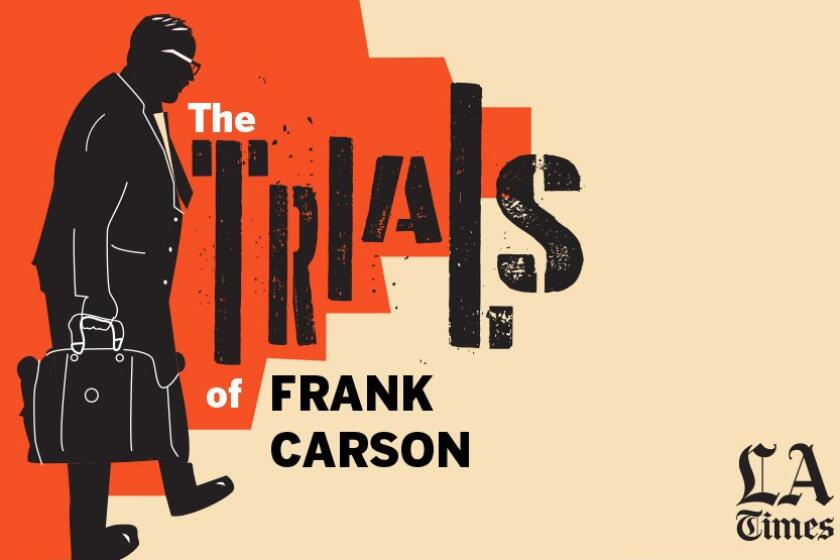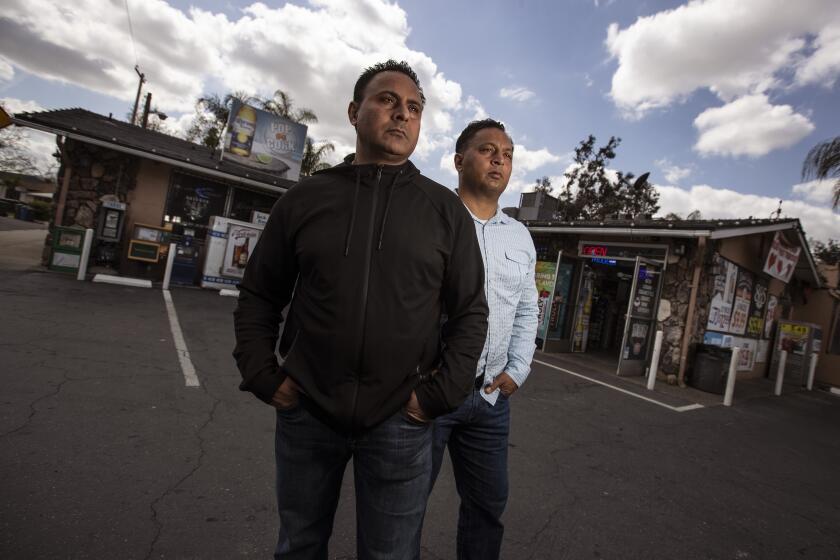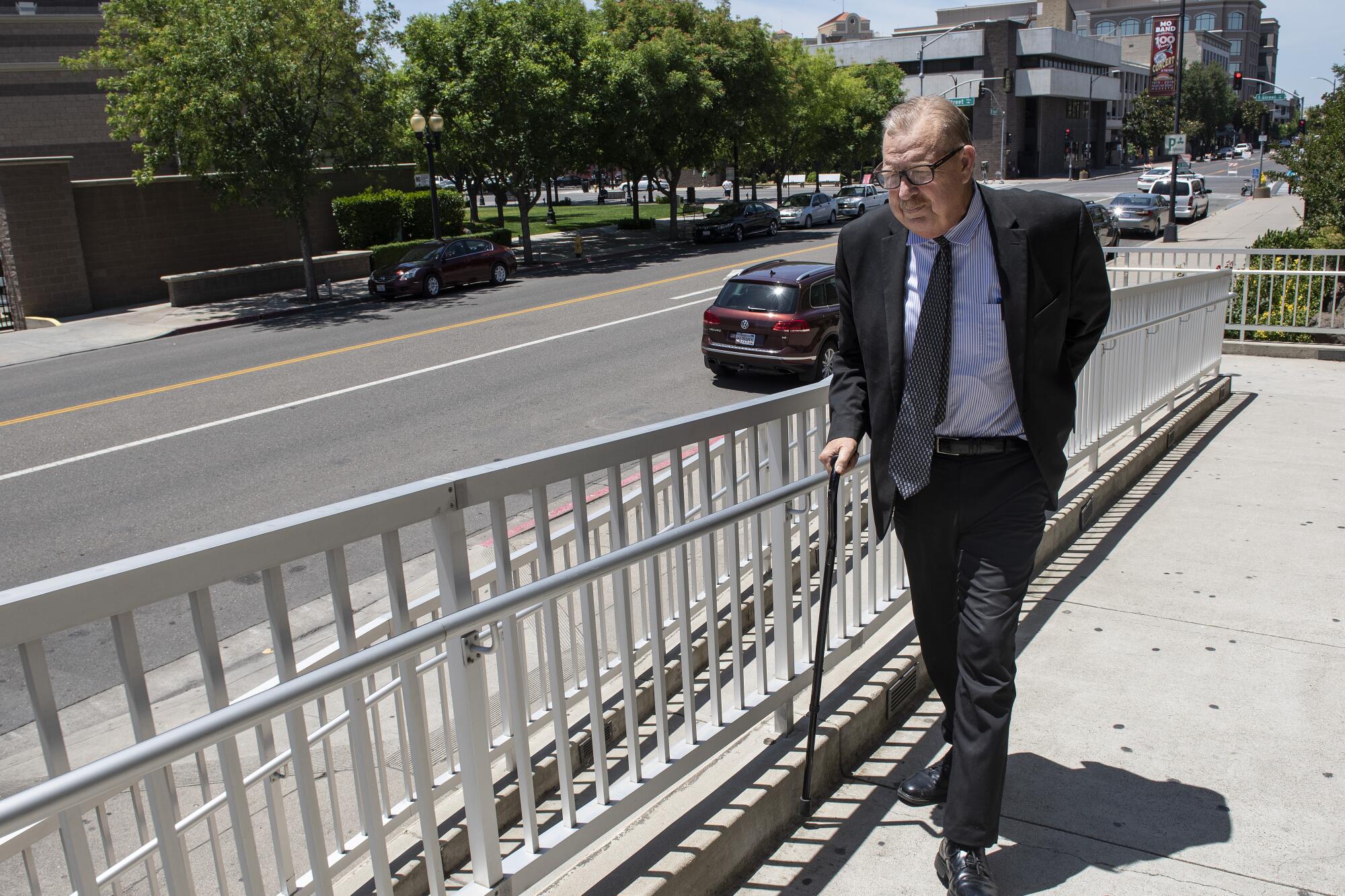
- Share via
MODESTO — Frank Carson, with his cane and a black leather satchel, was struggling up the courthouse steps in downtown Modesto. At 64, the wiliest and most combative criminal defense lawyer in Stanislaus County had made this trip thousands of times. In better days, he swaggered, the flamboyant terror of cops and prosecutors and judges.
Now it hurt Carson just to get up the steps, and his Vicodin had not kicked in. It was a Monday morning in June 2019. He was here to do the work of defending the wrongly accused, the thoroughly guilty and clients at every point in between. And he was here, as always, to spite his enemies with the raw fact of his survival.
His broad shoulders had shrunken in his Size 48 jacket. As he shuffled between courtrooms, cops stared. Carson would eventually make his way to the courtroom at the end of the first-floor hall. There, a brutally protracted murder trial was unfolding, one of the longest in California history. There, for 17 months, Carson had taken his seat at the defense table — not as the attorney but as the accused.
Carson portrayed the case against him and his codefendants as a monstrous fiction based on lies, coerced testimony and a tunnel-vision obsession with winning, confirming what he had been saying all along about the men and women sworn to guard justice in Stanislaus County.
“I’m getting paid back for 25 years of putting my thumb in the eye of the man,” Carson said. “I’ve given ’em hell for 25 years.”
How a controversial criminal defense attorney became the alleged kingpin of a sprawling murder-and-cover-up conspiracy involving nine defendants — and how he remained free to continue practicing in the same court where he was standing trial — is a story with roots in a Central Valley legal community where the cast of characters is small, and the memories long.
A thief goes missing
The thief lived in a house on South Johnson Road, in the shadow of the Purina plant and a big auto-wrecking yard. At night, he strapped on a headlamp, climbed on his bicycle and hunted for metal. He stole it from backyards and abandoned buildings and grain silos, dragging it home to cut up in his garage. He scaled telephone poles for copper. He pedaled over the railroad tracks into town, where on good days he could make $200 at the local recycling centers.
Cash ran through his pockets fast. At 26 years old, rangy and goateed, Korey “Korndog” Kauffman was deep in the grip of a crystal methamphetamine addiction. Once, he pulled his knife when some men found him prowling their neighborhood with break-in tools and cornered him. Another time, he stabbed a man in a fight, then hid in a doghouse until police ordered him out at gunpoint.
The San Joaquin Valley is one of the world’s top agricultural producers, a multibillion-dollar economic powerhouse. It is also a breadbasket of crank, or crystal meth. Day and night, major quantities of the drug travel up and down Interstate 5 and State Route 99.
Kauffman was a minor player in the area’s busy narcotic ecosystem. Turlock — a small town down Highway 99 from Modesto — has about 73,000 people, with a Foster Farms turkey plant, almond orchards and a Cal State campus. “He’d be doing really good, but those people seemed to find a way to just move back into your life,” said his mother, Terri Hutson, who lived out of state. “When you live in a small town like Turlock, it’s hard to get away.”
Kauffman’s half-brother, Shadowe Pickett, would describe him to police as a loner who smoked meth daily. “He wasn’t real close with nobody,” Pickett would say. Asked to described Kauffman’s tattoos, he listed a heart, ghouls, his mom’s name and his own name misspelled on his chest as “Kory.”
For a while, Kauffman found work with his biological father, Tony Kauffman, who ran a freight-hauling business. But his father, who was seeing the accelerating signs of meth-wasting in his son’s hollowing face, disapproved of his way of stealing from people’s yards and fired him.
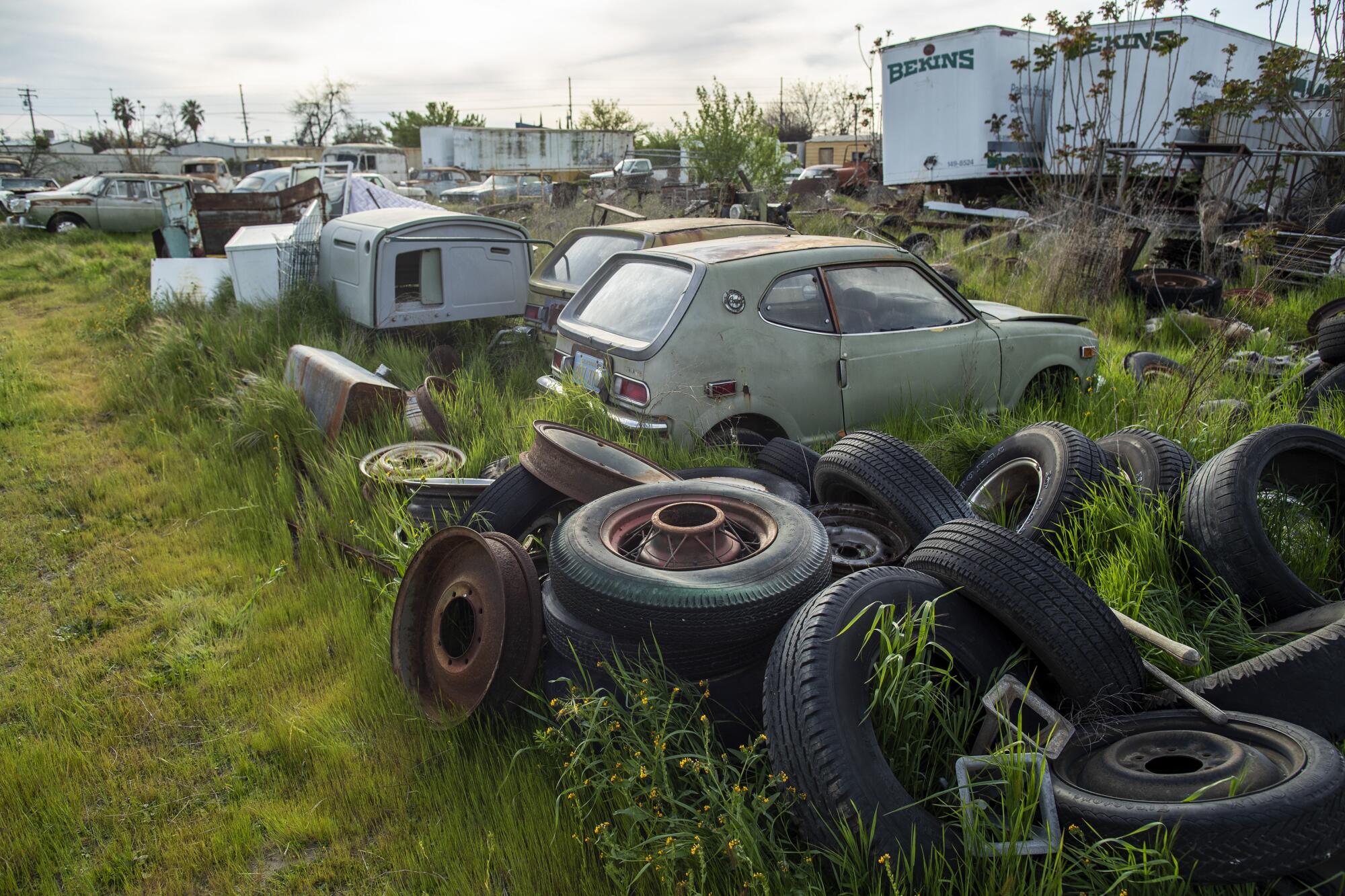
“Korey was like, ‘Well, it’s just rotting in somebody’s backyard — at least I can make some money off it,’” Tony Kauffman told police. “I go, ‘Well, it’s their stuff to rot. It’s not for you to take it.’”
When Korey Kauffman’s family reported him missing in spring 2012, his disappearance was dutifully noted, as was his methamphetamine habit. As one of 244 missing-persons reports in the city of Turlock that year, it did not immediately attract a massive law enforcement response.
Down-home, or duplicitous?
When he stood before a jury, arguing a client’s innocence, Frank Carson loved to tell a story about a PayDay candy bar, the one he bought on the road in Monroe, La.
Burly, heavy-jowled, his country-boy persona in full flight, Carson would pantomime tearing open the wrapper, savoring the creamy center and salted peanuts, his eyes then bulging in alarm at the sight of a maggot on one end. This was Carson’s go-to metaphor for a criminal case tainted by bad evidence.
“Do I take that thing and eat the rest of it and hope that it’s good? Even though I don’t see it, I’ve got to trust that it is not nasty,” Carson would say. “You will never, ever know that the portion that they’re asking you to swallow has not been dirty, has not been contaminated.”
Carson, native of blue-collar Modesto and son of thrifty Depression-born Texans, was the antithesis of the spit-and-polish prime-time defense attorney. He bought his ties at swap meets, and his secretary carried a spray bottle to straighten his disheveled hair. He often said he looked like he had just stepped off his John Deere tractor.
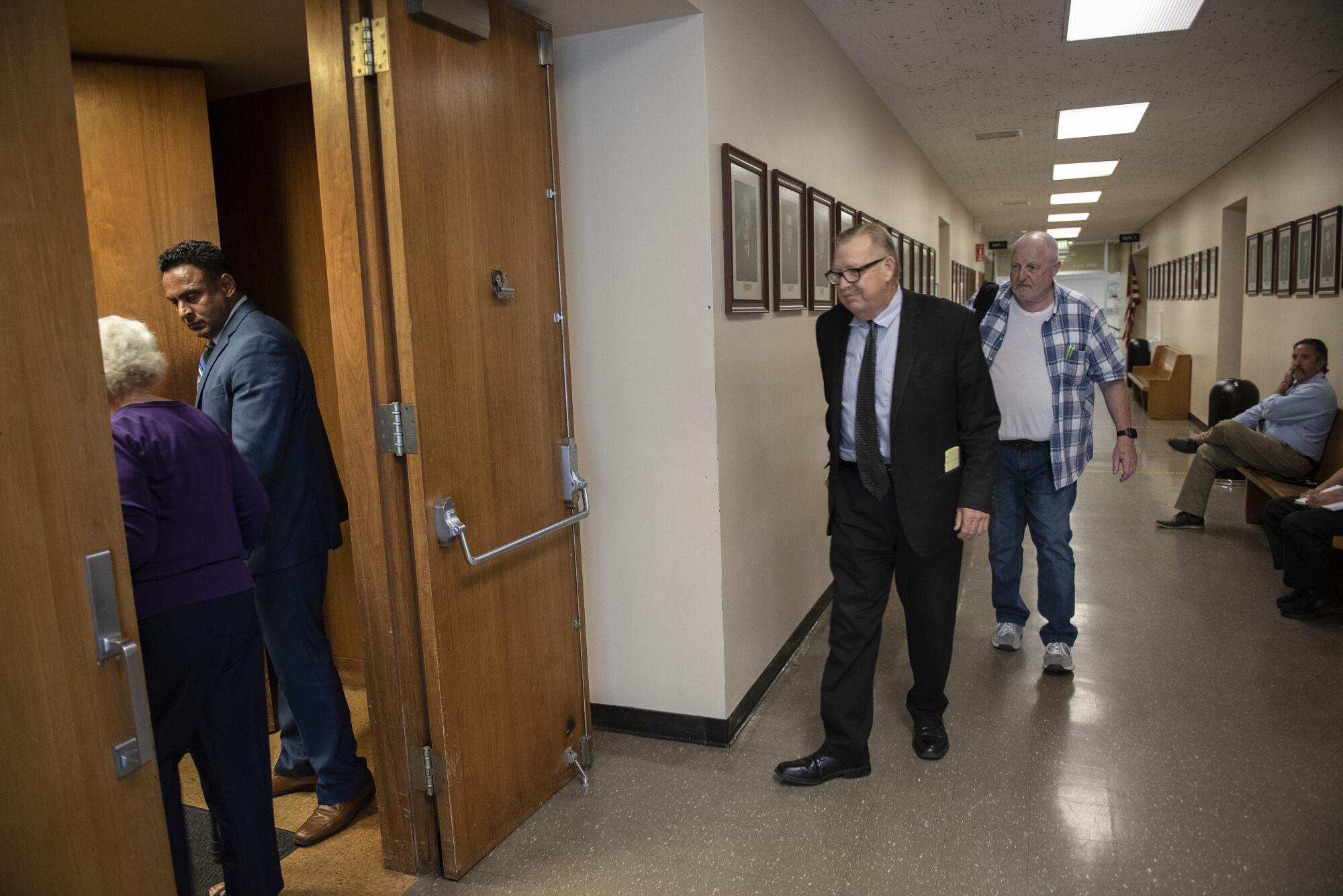
His shambling appearance and down-home manner were not a liability but part of his appeal to jurors in a county of almond groves and citrus orchards, cattle ranches and rodeos.
To the law enforcement establishment, this was a duplicitous facade, a smokescreen for authority-hating vitriol, deep viciousness and — ultimately — homicidal rage. Carson’s name, among the custodians of the law in Stanislaus County, was enough to chill a conversation.
“They’ve used a lot of words to describe Frank: evil, nasty, nefarious, untrustworthy, sleazy,” said defense attorney Doug Maner, who used to tangle with Carson regularly as a Modesto prosecutor.
If you were a prosecutor or cop trying to put one of Carson’s clients away, you could expect him to attack you.
“He questioned their manhood. He questioned their intelligence. He questioned their ethics,” he said. “He was confrontational, and he was insulting, and he would degrade people and say nasty things to them. And some people, it got to.”
Defeated prosecutors blamed their failures on Carson’s supposed mendacity and cheating, Maner said, adding: “Whereas really, as a D.A., you failed.”
Carson grew up solidly Republican, a firm believer in law and order, and put himself through law school selling old books and delivering meat. The district attorney’s office wouldn’t hire him, so he went to work as a deputy public defender and inherited files scrawled with the initials “DBL,” or “dead bang loser.”
Carson relished impossible cases, and the combat of trial, and he began to develop a profound distrust of police. It made sense to him why defendants lied, he would say, but to find a cop prevaricating felt like a personal betrayal.
Excoriating cops he deemed deceptive became his signature, no less than the candy bar speech. He evolved a scorched-earth form of criminal law. He liked to keep prosecutors nervous and off-guard and rattled, the better to win.
“We could be chummy and things, but in the back of their mind, they should know that — and this is figuratively — that I have a butcher knife. And if I get a chance to get behind you and stab you, I’ll do it,” Carson said. “You know, for my client. I mean, I’m not going to do anything unethical, but I may pull a witness out of the hat, and I may not tell you what’s coming.”
Carson’s temper flared at perceived signs of disrespect. Fined $200 for shouting at a judge, Carson called it the best money he ever spent, and explained: “If you can gore the man, put your finger in the eye of the man a little bit, that’s just gravy.”
For years, when Carson wasn’t raising a clamor at the courthouse, he was shuttling between swap meets and antique shows and car auctions around the Central Valley. He could spot a valuable cobbler’s hammer in a junk pile as quickly as the rickety buttress of a prosecutor’s argument.
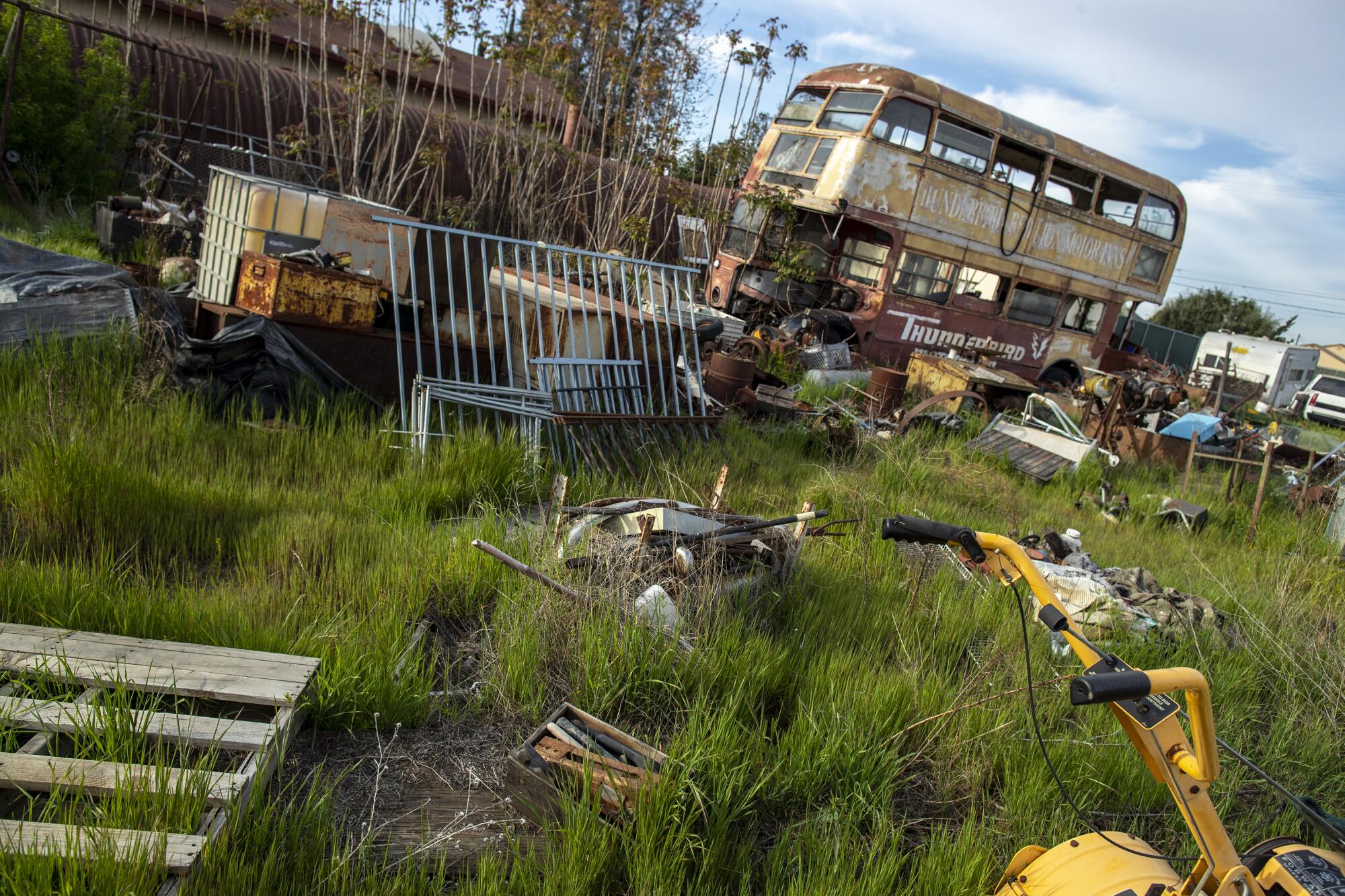
Carson collected large quantities of junk and antiques and stored them on a big lot he owned in Turlock. He had classic cars and vintage signs locked inside long barns, and outside sprawled a weedy field cluttered with old bathtubs, wagon wheels, scraps of random junk, a rusted double-decker bus.
Local thieves raided the property liberally, sneaking through a gash in the fence and emerging with armfuls of goods. They called it “the antique store.”
Jugular instinct
When people talked about the trials that made Carson’s reputation — his ability to elevate the emotional temperature, his jugular instinct, his success — they invoked his defense of the former Modesto mayor, Carmen Sabatino.
Sabatino was a cantankerous gadfly and restaurateur who cast himself as an anti-corruption crusader. In 2003, during his first term as mayor, he was charged with multiple felonies, including voting on a cable contract while getting free cable himself.
Carson announced he would use the trial to expose the rancid underbelly of local politics. He argued that his client was the victim of a wide-ranging conspiracy of local potentates. He railed against the judge, who slapped him with five contempt-of-court citations.
Relentlessly, he attacked a veteran district attorney investigator on the case, Kirk Bunch. He winked at Bunch mockingly while questioning him, and made great efforts to antagonize him.
Over and over, he invoked an incident in which Bunch had shot a fugitive in the line of duty, then took time off on a disability claim. At one point, Carson told the judge that Bunch was “nutting up” and “cracking up” in court, describing him as a dangerous man who needed to be disarmed.
“He was disabled with post-traumatic stress syndrome,” Carson told the judge. “And people, you know, nut up all the time during that.” The judge refused, and the D.A. denounced Carson’s “vilification” of Bunch.
The jury deadlocked; the D.A. dropped the case; Carson gloated. Later, he memorialized his contempt for Bunch in a court declaration for other lawyers to use.
“Among local attorneys familiar with his work,” Carson wrote, “he is reviled as dishonest and unprofessional.”
‘The antique store’
In April 2012, Bunch walked up to the door of a Lander Avenue home in Turlock to interview its resident, Michael “Big Mike” Cooley. Cooley was a career criminal in his early 50s, a former member of the Aryan Brotherhood prison gang, an enthusiast of knives and black tar heroin. His tattoos said “White Pride,” “Wanted” and “Ladies Love Outlaws.”
Cooley had a compelling story to tell, one that seized Bunch’s interest. He thought he knew what had happened to his buddy, Korey Kauffman, who had been missing for weeks. Cooley’s house had been one of Kauffman’s regular hangouts, and they tossed horseshoes in the backyard pit.
“Me and him, we would go out and we would like steal copper,” he told Bunch. The last day he saw him, he said, Kauffman planned to raid the big, fenced-in lot next door, the place thieves called “the antique store.”
The lot teemed with junk, and according to Cooley it glittered with a new temptation: a pyramid of 15 aluminum irrigation pipes.
“He tapped me on the leg. He goes, ‘Hey, bro, I’m gonna go around the corner, I’ll be right back,’” Cooley told Bunch. “He never came back.”
The lot belonged to Frank Carson, who had been enraged for years by the thefts from his property. Cooley said the attorney had confronted him repeatedly, called him a punk, even threatened to kill him and make him disappear. Cooley said he’d spit in Carson’s face. And he said he thought something had happened to his friend over there.
Bunch listened with interest. He felt the need to reassure Cooley about his motives, however.
More from Christopher Goffard
“My thing is on this, it’s not ’cause it’s Frank Carson, OK?” Bunch said. “It’s because of Korey. I’m gonna try to piece this together and see what happened, try to put the puzzle together.”
In a report, Bunch wrote that Carson “may be involved” in Kauffman’s disappearance. He called for “a thorough and objective investigation” into the defense attorney. If he was not involved, it was important to rule him out so that his “current caseload remains unaffected.”
The report did not mention Bunch’s fraught history with the defense attorney in question. It did not mention Carson’s blisteringly personal attacks on him. Carson’s allegations were spurious, Bunch would insist, and he harbored no animosity toward the man who leveled them. He remained unbiased, his judgment unwarped. He was, the D.A. decided, the right investigator for this job.
‘Crankster talk’
The world in which Korey Kauffman and Michael Cooley ran was a cauldron of dope fiends and thieves and parolees, hustlers and ex-cons and snitches scrabbling for advantage and survival. It was a den of “crankster talk,” as one cop would put it — shreds of hearsay passed from one dope-addled vessel to another.
Bunch and other investigators encountered no shortage of stories about people who had wished Kauffman harm. A guy who threatened to cut his throat for cheating him on a trailer-salvage job. Some drug dealers whose pot plants he’d pilfered. Some other guys angry about power tools he swiped from a shop on East Avenue.
Kauffman’s capers had been prolific, and his rumored enemies many. Yet it was Frank Carson whom district attorney investigator Kirk Bunch, now part of a multiagency task force including the Sheriff’s Department and local police departments, zeroed in on.
‘The Trials of Frank Carson’ is a true crime podcast about power, politics and law in California’s Central Valley.
The task force raided Carson’s Turlock property that July. They cut the locks on his barn and battered through the front door of the house where his stepdaughter, an art student, lived and painted. They swept the grounds with a cadaver dog. There was no sign that Kauffman had ever been there, much less died there.
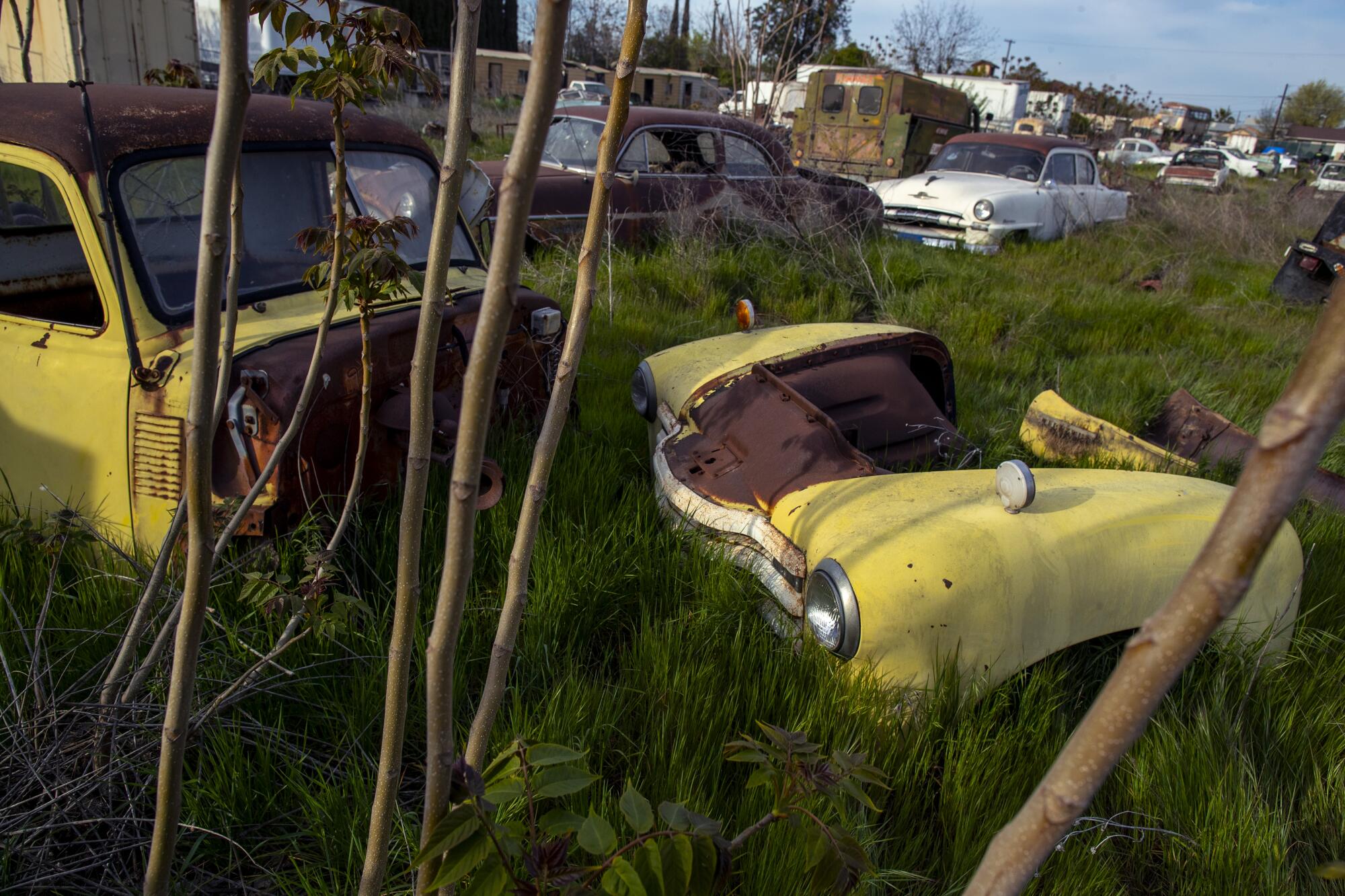
“I don’t know what they think,” Carson told his mother by phone, as police listened and recorded surreptitiously. “I haven’t buried anybody. I assume that’s what they think. That’s just stupid.”
He called his wife, Georgia DeFilippo, to warn her the Turlock house would be wrecked when she returned.
“Did they find any bodies?” she asked dryly.
“Hell, no. There isn’t any.”
“Are they done with us then?”
“No,” Carson said. “They are not done with us by a long shot.”
‘Get out!’ Carson said — 50 times
Carson’s office, on a quiet street in downtown Modesto, was gritty and shopworn and functional in feel. It was furnished with mismatched bookshelves and eccentric swap-meet bric-a-brac: a vintage model train, an antique service bell on the secretary’s desk, an old ranch sign offering a reward for chicken thieves.
Carson was there with his wife, who worked as his office assistant, when Bunch entered on Aug. 9 in the company of two other cops. Carson distrusted local investigators and had not cooperated with their investigation, exactly as he would have advised a client to do, and now he demanded: “Do you have a warrant for my arrest or anything?”
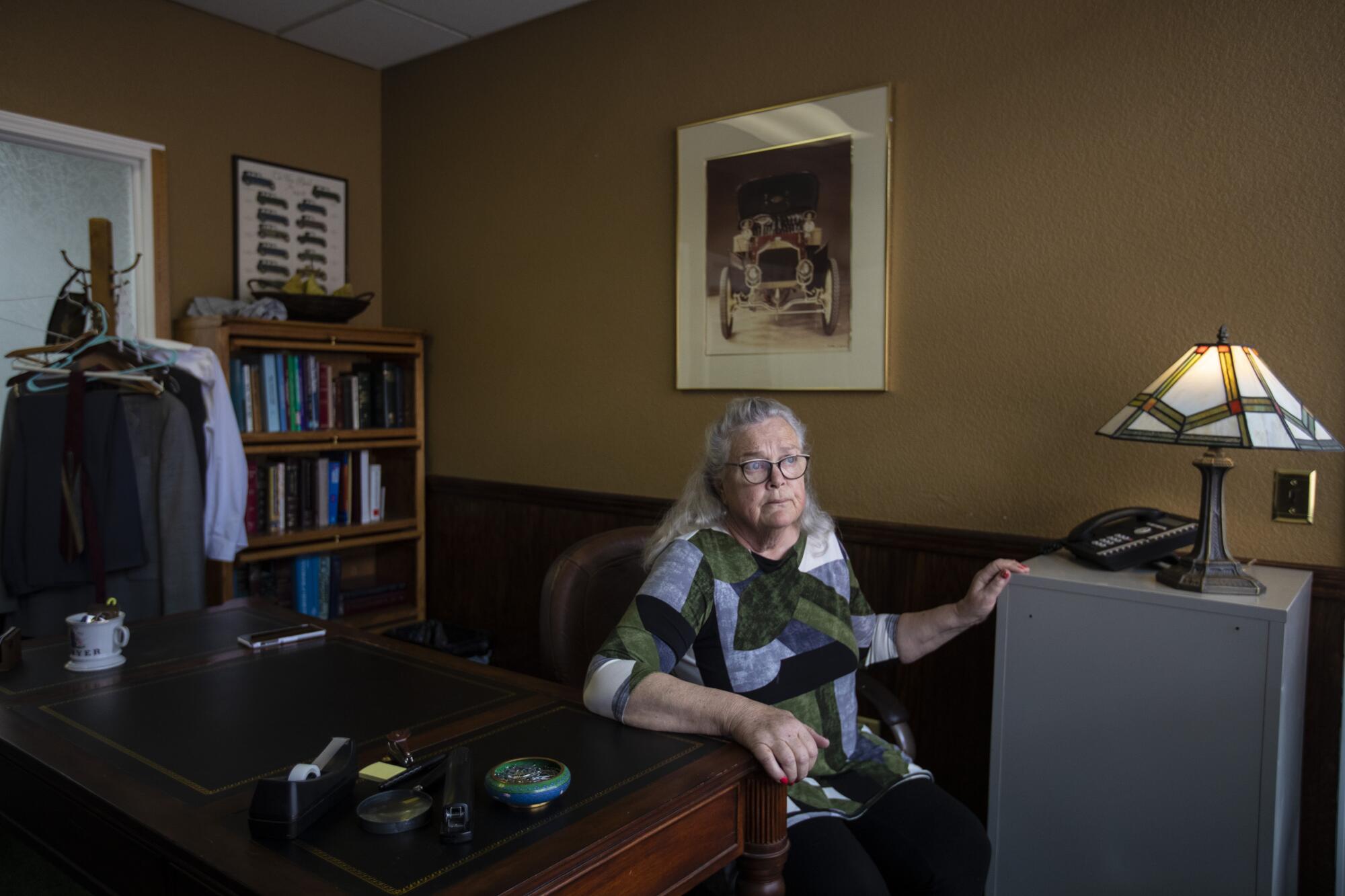
His defenders would call this a rational exercise of his rights; prosecutors would characterize it as consciousness of guilt.
They had no warrant. They just wanted to find Korey Kauffman. They wanted to ask some questions.
“Get out!” Carson barked.
They were on his property uninvited, yet one of the detectives said, “This is open to the public.”
“Get out,” Carson repeated, increasingly irate, bellowing, screaming. “Get out!”
Bunch and his partners were not getting out. Bunch said, “Don’t be aggressive, Mr. Carson.”
Carson called 911. “I need help up here,” he said. “These people won’t leave.” He demanded that the cops be disarmed and placed under arrest for trespassing.
“We didn’t do anything,” Georgia said. “I’ve never seen that kid before.”
One of the cops said, “We have some information that —”
“It’s false,” Georgia said. “You’re getting dirtbag information. You believe all those heroin addicts.”
Carson, with his eye on Bunch, told the 911 dispatcher, “He’s got the gun. I see the gun.”
“Calm down, Frank,” one of the cops said.
Bunch and the other cops were still not leaving. Bunch said: “You know, Georgia, this thing’s gonna be all bad.”
“He just threatened my wife,” Carson told the dispatcher.
“It’s gonna be all bad,” Bunch said again.
“Bunch has just threatened my wife, saying, ‘It’s gonna be bad,’” Carson said.
The cops still refused to leave. Bunch said, “Are you being aggressive, Mr. Carson?”
“You need to get a police officer here,” Carson told 911.
Bunch said: “We tried to sit down and talk, and I don’t know why Mr. Carson is being so resistant, unless he had something to hide.”
They were 4½ minutes into the confrontation.
“Get out so we can lock the door,” Carson told them. “I’m tired of your abuse and your threats.”
Bunch said, “All right, Mr. Carson. It’s not gonna go away.”
Carson told him to close the door.
Bunch said, “It’s not gonna work this time, Mr. Carson. You’re under investigation. We’d like to talk to you.”
The confrontation lasted 6½ minutes. Carson had used the phrase “get out” some 50 times.
A grisly discovery, and a counterattack
A skull. A femur. A pelvis. A scapula. A rib. Three vertebrae. There was little left of Korey Kauffman when detectives, alerted by a hunter, found his scattered remains deep in Stanislaus National Forest in August 2013, about 70 miles from where he vanished 17 months earlier.
No physical evidence connected the remains to Frank Carson. Dist. Atty. Birgit Fladager and her investigator, Kirk Bunch, did not stop trying to link Carson to the crime, however. Some friends told Carson they would never charge him — it was too far-fetched a possibility — but rumors reached him that his arrest was coming.
Carson’s counterattack was characteristically defiant and wily: He decided to run for D.A. He was a political tyro with little chance of winning, but his campaign to deny Fladager a third term afforded him a megaphone to denounce her office as corrupt and dysfunctional. If he won, the case against him might vanish. If he lost, he could portray any case against him even more sharply as political retribution.
Carson told voters she overused wiretaps, refused to try cases herself and had too many overpriced investigators, a dig at the job Bunch happened to hold. In a recorded interview with a witness, Bunch expressed an opinion about Carson’s motive.
Bunch said: “He wants chaos.”
Carson lost the race, but he continued to embarrass Fladager’s prosecutors in court. In December 2014, Carson won a full acquittal for a bail bondsman who had been facing life in prison on extortion charges. He accused a prosecutor and a district attorney investigator of jury tampering, forcing them to defend themselves on contempt-of-court charges.
At home one morning in August 2015, Carson heard a bullhorn through the wall as he was getting ready for court.
“Frank Carson! Come to the front door with your hands up!”
Snarling, he stepped outside to meet them.
Read the rest of the series:
Listen to the podcast:
More to Read
Sign up for Essential California
The most important California stories and recommendations in your inbox every morning.
You may occasionally receive promotional content from the Los Angeles Times.
